A slightly quieter week in HE policy, dominated by the release of the latest NSS data, which if course has policy implications as:
- it will be included in the next iteration of the TEF (which looks at three years of data) subject to any changes to the TEF after the independent review, and
- potentially either directly, or indirectly via the TEF, in any OfS designed methodology for assessing quality linked to the implementation of the Augar recommendations (if that happens).
Review of Post-18 Education and Funding
The Lords have been debating the implications of Augar. This week the Lords debated more of the substance of the Augar review. As expected much of the session was about the FE agenda and regularly mentioned the importance of apprenticeships.
It was emphasised that because of future automation of jobs it is essential for the full post-18 system to be flexible and to enable all ages to dip in and out of learning.
The Lords HE Spokesperson, Lord Younger, reiterated familiar messages for young people about making informed choices and for technical routes to receive equal status with academic. “To ensure a genuine choice for young people, and to give employers access to a highly skilled workforce, we want to see a system where technical education has the same weighting for a young person as an academic route.”
Lord Younger raised (familiar) issues that the Government raises:
- further growth in three-year degrees for 18 year-olds [but a] lack of a comprehensive range of high-quality alternative routes (technical or vocational path)
- Degree outcomes and quality of provision – That a degree doesn’t always ‘set them [young people] up for a bright future’…’analysis shows that this is not always the case’. Studying for a degree is expected to benefit those undertaking it, with improved employment opportunities and a wage premium alongside wider individual well-being and other social benefits. Low-value outcomes are not just about economic returns. High-quality provision in a range of subjects is critical for our public services and for culturally enriching our society. The LEO data on labour market outcomes was mentioned as a step in the right direction.
- In universities, we have not seen the extent of increase in choice that we would have wanted. The great majority of courses are priced at the same level and three-year courses remain the norm, when some courses clearly cost more than others and some have higher returns to the student than others. It is right that we ask questions about choice and value for money.
- Young disadvantaged still less likely… than their more advantaged peers to attend the most selective universities or to have the support that they need to complete their degree successfully and achieve a 2.1 or a First.
- large increases in the number of unconditional—or conditional unconditional—offers…and the potential impact that these offers can have.
- concerns about the serious issue of grade inflation.
However, he said: I share the Secretary of State’s strong belief that both the HE and FE sectors can, and should, continue to thrive together.
Lord Storey (Liberal Democrat Spokesperson for Young People and Education) criticised HE for stating proposed fee cuts would affect disadvantaged students and result in reducing outreach programmes and held up FE as a shining light and poor cousin in comparison.
- “The media headlines [about Augar] were not about the [FE/HE] rebalancing of vocational education but all about the impact on our universities. I do not think it was a helpful message from the spokespersons of the wealthiest universities that, should their income suffer, one of the likely cuts they would have to make was to their outreach activities. Their budgets for increasing diversity and encouraging disadvantaged students would be the first to be cut. This was not a particularly helpful or thoughtful comment on the review.”
- “[The] media paid scant attention to what was said about England’s 200 further education colleges, which are the backbone of our vocational training provision. Our further education colleges represent the essential engine to meet our growing skills gap.”
He went on to criticise the elitist view that schools and parents judge their pupils’ success by how many go to university….But actually, a vocational education or apprenticeship might be better for many young people. Further education is often seen as for other people’s children…With schools incentivised to direct their students into the school sixth form and then to university, many students are not even told about the vocational options or apprenticeship routes open to them. He continued on to criticise schools for not providing enough support or information on apprenticeships.
Baroness Tessa Blackstone (Labour Independent) also focussed on FE requiring more resources. In relation to HE she said:
- “I greatly welcome the recommendation to reduce tuition fees for undergraduates to a maximum of £7,500…I can think of no other example where the price of a public service to the user, in this case graduates, has been increased by so much at once. There are several unfortunate outcomes, including the need for huge write-offs of unpaid loans, leaving a large problem for the public finances in the longer term, and the disastrous decline in part-time and mature undergraduates.
- I welcome the recommendation to return to government grants to make up for the loss of fee income but regret that it is focused on STEM subjects. We must stop perpetuating the myth that science and engineering courses hugely outweigh others in their usefulness and value to the economy and society”
On FE she called for the need to rebalance spending priorities towards the 50% of the population who do not go to university and “I end with a plea to the Government: please mend your ways and put the FE sector at the centre of the education system”.
Several Lords highlighted doubt that if tuition fees were cut, income shortfalls for universities would be made up by some form of Government grant (including Lord Patten and Lord Blunkett). Lord Blunkett said it was naïve to believe the Treasury would make up the shortfall and criticised the calculations behind the Augar review as “ingenious creative accounting, which led to the belief that it would be possible, on an annualised basis, to present the changes at £700 million”.
There was also criticism of the potential formula shifting funding away from humanities to STEM subjects as “absurd”.
Lord Patten on Brexit said:
- “These are turbulent times; I hope that we will not add to that turbulence the gale force of a complete overhaul of university financing. We should help universities over the next period; the Government have so far been unprepared to say how they see the way forward.”
Whereas on the increase to £9,000 fees Lord Adonis (Labour) said:
- universities did not actually require…that degree of cash infusion. Indeed, they were not capable of absorbing it…it was expected that most courses would be at £6,000 and that the fees would be varied. What happened, of course, was that every university went straight up to £9,000. Universities could barely absorb the cash…. it is striking that, for a lot of courses in universities now, the fee level is higher than the actual cost of delivering the course.
The Lord Bishop of Winchester said Augar proposals weren’t extreme enough. Even after restoring the teaching block grant and reintroducing maintenance grants the Bishop said:
- such steps are insufficiently radical. They do not, for example, address anxieties about student debt that are particularly acute in professions such as nursing, where some 50% of nursing and midwifery trainees are mature students with other family, caring and financial commitments. Nor will they address the equally crucial crisis in staff retention, already visible in nursing, and in social work and teaching. As a matter of public policy, we need to create more effective ways to incentivise people to join public-service focused professions and to avoid unintentional disincentives for the higher education institutions that educate and train them—for example, by placing too much weight on graduate earnings as a measure of institutional effectiveness. May I suggest to the Minister that a more radical approach would be through a public service covenant… undergraduates would commit to several years post-registration service to the NHS in return for their loan balance being written off.
Lord Blunkett welcomed the recommendations for part time students, the maintenance grants and support for FE learning. He criticised the LEO data for not including self-employment, the size of the employer (level of affordable pay) or regional fluctuations in earnings. He emphasised the importance of universities an anchor institutions within a community, particularly for the disadvantaged and urged: If we damage the university sector in our country by cutting funding to teachers and reducing numbers or discriminating against particular courses because the national press do not like them, we will regret it down the line.
Lord Bichard highlighted that the reduction in HE fees is insufficient to change the mindset of prospective students, not least when the term for repayment is extended from 30 years to 40 years, the income threshold at which loans are repaid is reduced from £25,000 to £23,000 and the interest charges, post graduation, remain at 6%… Taken together, these fee proposals are regressive, with the well-off paying less—something like £25,000 less during their life—while those on middle and lower earnings will pay some £12,000 more, according to the DfE. Given that the review recommends that the Government make good the loss of income to institutions as a result of these fee changes, and given that the fee changes are not going to benefit students in any great respect, this seems to be a flawed set of proposals. He also highlighted that the review does not tackle the issue of affordability for mature and part time students, including the lack of part time/distance maintenance loans. The Lord highlighted how the opposite policy in Wales has resulted in a 35% increase in part time UG students.
Lord Kakkar raised the substantial cross subsidisation of research activity through tuition fees and challenged the Government to consider how justifiable recommendations on increased support for further education and lifelong learning could be reconciled with the need to stabilise the research base in universities (which delivers the Government’s research and development targets and is crucial to the industrial strategy).
Lord Kerslake said the Augar review was unable to make sound HE related recommendations because it was hampered by the Government’s red lines:
- the review having to reconcile four conflicting elements in its brief: delivering a headline reduction in student fees; sorting out the chronic funding issues in further education; avoiding a cap on student numbers; and keeping within the current funding envelope.
- Those four things individually make sense but collectively they do not. They risk significantly weakening higher education finances, while doing little to assuage young people’s feeling of unfairness about the costs that they currently incur. Freezing fees for a further three years will amount to a real-terms reduction of 14% once the rising costs of pensions are taken into account. Fees will then have been frozen for a decade, apart from a £250 increase in 2017.
And on robbing the HE Peter to pay the FE Paul Lord Kerslake said: There is no great nobility in austerity that should compel us to transfer funding from one part of the sector to the other.
Baroness Garden of Frognal (LD) welcomed the reports sensitivity to the need to align the skills system with the needs of the economy and deliver high quality alternatives to traditional three-year residential undergraduate degree. She also championed investment in community adult learning facilities to support adult learners who need more informal settings to study within.
The Opposition Spokesperson for Higher and Further Education, Lord Bassam of Brighton, was keen to point out that cross subsidisation through research grants and international student recruitment was not possible for all universities and not every university has the option of seeking new student markets abroad. “These smaller, modern local universities tend to have the most diverse intake of young people and are therefore core engines of social mobility. They are most vulnerable.”
APPG Universities
Alistair Jarvis has written for the APPG University Group on Augar: the good, the risks and the challenges. He expresses concern for the removal of loan support for foundation years and the restrictions on degree apprenticeships were students already have a degree. On the challenges he covers:
- Universities need to work with Government to develop and enable a system that supports lifelong learning – identifying current barriers, proposing solutions, and addressing the practical issues on delivering a credit-based system and lifelong loans.
- We need a vision for universities’ role in delivering level 4 and 5 – to include identifying opportunities for universities to grow their role and strengthening partnerships with FE to meet skills needs.
- Rising to the challenge to properly define ‘value’ for students and supporting universities to address value concerns. This must include a more nuanced definition of value, beyond just salary outcomes, and considering how this can be measured.
- Evidencing the steps universities are taking to promote efficiency, improve understanding of a university cost base and promote further efficiency.
He states UUK are working on all four of these but there is an undertone that the Government needs to meet the sector halfway.
Brexit and EU students
The Minister for Universities has confirmed that EU students will continue to be eligible for UKRI post-graduate training support for courses starting in 2020/21, for the duration of their courses. This is good news and follows the similar announcement made in May. about EU undergraduate students accessing student finance.
Value for Money
We’re likely to see the value for money debate coming back into focus as we head towards the late autumn spending review. The RAB (the Government’s accounting value for spending on loans that won’t be repaid) has risen to 47% (+2% since last year). Education SoS, Damian Hinds, spoke about the rise:
It is often overlooked just how much the Government, and therefore the taxpayer, contributes to student loans being taken out in England…Today’s figures highlight just how progressive our system is, but also reiterates the need for universities to deliver value for money on courses – not just for students, but the taxpayer as well.
The DfE said that the data also highlighted that the Master’s loan system does not require any subsidy from the government, with the majority of students studying at this advanced level going on to pay back their loans in full.
HE fee levels are a key aspect of Augar and were an important campaigning point in the last general election. We can expect the new Conservative leader to reveal their standpoint on fees early in their tenure (assuming they survive Brexit).
Research Funding
The Universities and Science Minister has confirmed an additional £91 million for university-led research.
- “£2.2 billion research funding for English universities for 2019 to 2020 announced today to help translate our researchers best ideas into reality
- “an overall increase of £91 million including an additional £45 million for quality-related research (QR) funding – representing a real-terms increase of 2.3%
- “the move forms part of government’s Industrial Strategy commitment to boost R&D spending to 2.4% of GDP by 2027 – the highest ever level of R&D investment in the UK”
Commenting on the announcement of £91 million in additional university-driven research funding, including a £45 million increase in QR funding, Alistair Jarvis, Chief Executive of Universities UK, said:
- “This is a significant investment into the future of research in the UK, and a positive step towards the government’s target to invest 2.4% of GDPinto R&D.
- “Quality-related research funding plays a key role in developing new talent, strengthening research culture and building the skilled workforce the UK needs if we are to perform effectively as a modern knowledge economy.
- “With many of the greatest research discoveries and advances having evolved from curiosity-driven research, it is critical that we continue to invest across all subject disciplines.”
The detailed budget allocations are available on the Research England website.
Student Representation
SUBU’s Sophie reflects on student representation:
Summer is a time of change in Students’ Unions as incoming elected Full-Time Officers begin the handover process and re-elected officers start making plans for the year ahead. In SUBU, this is Brad Powell’s last week as Vice President Welfare and Equal Opportunities and he will be taking everything he has learned over the last year to channel it into a Master’s degree at the University of Surrey. We welcome Joanna Ann, who was elected by BU students back in March to represent their welfare issues and champion their equality. Her handover has begun and she is being inducted into the responsibilities and expectations of being a representative, which will continue over the summer, joining the re-elected officers; Abidemi Abiodun- VP Welfare, Ade Balogun- President, Lea Ediale- VP Activities and Lenrick Greaves- VP Education.
Considering so many people develop their understanding of policy and decision-making from undertaking student representative roles – whether in school as a school councillor or perhaps at a local level as a voluntary Member of Youth Parliament, or whilst in University as an elected paid Full-Time officer, or lead of a club or society – the impact that it can have on people’s lives and future job prospects hasn’t been well documented.
Both contenders for the UK’s next Prime Minister, Boris Johnson and Jeremy Hunt, were representatives whilst studying at Oxford; Boris as the President of Oxford Union and Jeremy as President of the Conservative Association. I’m sure that if asked, they could tell you at least 3 things about how it helped develop them in relation to where they are today. We have seen funding cuts for youth/student democracy in local authorities as budgets are tightened; without an impact measure of how helpful undertaking student representative roles are, these valuable opportunities continue to be under threat.
As the new Bournemouth, Christchurch and Poole council come together and make decisions on funding allocation for services; it will be interesting to see what the future holds for student/youth democracy such as support for UK Youth Parliament in this local area. Currently only Poole has a member of youth parliament and deputy; they now find themselves representing young people across 3 areas, with uncertainty about whether youth parliament will still have a role locally in the future. A Wonkhe article yesterday asked ‘What role should students and their SU’s play in the community?’ and perhaps part of that should be to reinforce the importance of having the student/youth voice at local, regional and national decision-making tables.
This is where we need those who have experienced positive impact from taking part in representative opportunities to talk about how it helped them. On the 22nd June I was invited to the first British Youth Council convention of the year to be their keynote speaker and inspire the newly elected student representatives, talking them through all the different opportunities that they have opened up for themselves by taking part in something so important. I also ran a couple of workshops on leading successful campaigns because I wanted to give back to a movement which has got me to where I am today. British Youth Council is an organisation funded through the Government to ‘empower young people across the UK to have a say and be heard’ and it supports UK Youth Parliament, along with other similar initiatives. I shared my experiences at the convention of being a youth representative from the age of 12 and the opportunities that have shaped me, such as being part of the first group of Members of Youth Parliament (MYPs) to debate in the House of Commons, 10 years ago this year. As I was talking I was struck by how much the support, resources and funding have been cut. Another thing I noticed, and mentioned in my speech, was that one of their key campaigns continues to be the same as when I was in the role – lowering the voting age for 16 and 17 years olds to have the right to vote, so they too can influence key decisions that affect their lives. Without this important right the voices of young people can be brushed aside. [It’s been debated many times in Parliament but was tabled once again in April of this year as it was not part of the Conservative manifesto pledges.]
If you take the example of Brexit, the referendum took place 3 years ago this month and students who were 16 and 17 at the time did not have the right to vote on something affecting their future. They are now of voting age, but the decision was taken out of their hands.
We’ve seen the impact that Greta Thunberg has had on the world; demonstrating the power that students and young people collectively have when they come together on an issue they are passionate about, as well as doing this above party politics. The UK Youth Parliament demonstrate every year how students and young people are a force to be reckoned with, making national manifesto commitments to supporting mental health, tackling knife crime, and fighting to lower the voting age to 16. We especially see this when they debate in the House of Commons and demonstrate more mature forms of debate than their ‘adult’ counterparts. Here you can see Francesca Reed, former MYP for Poole, introduce a motion in the House of Commons on improving mental health services.
Meanwhile, BU continues to look at ways students can have a voice at different levels of the institution. The importance of the student voice has been enshrined not only in BU2025 but is also a key component of the QAA’s Quality code, which was influenced by SUs around the country (see Wonkhe). It has expectations and practices on how students should be actively engaged in quality assurance and enhancement processes: “effective student engagement contributes to quality assurance and enhancement processes by capturing the voices of all students”.
BU recently completed a Focussed Enhancement Review (FER) on the Student Voice in line with BU2025. BU and SUBU representatives looked at how the student voice can be enhanced in different areas. Students fed into the FER on the Student Voice through their Vice President Education Lenrick Greaves, who was part of the FER, and also through a student consultation event held by the Students’ Union back in May. Work continues on enhancing the Student Voice at BU through a task and finish group. Perhaps more can be done by institutions to show how the student voice is important in decision-making to influence local authorities to do the same. Until then, the question remains about the future of student representation outside of a University setting.
Other news
Future demand: In last week’s policy update we talked about the popularity of particular subjects. This week there is a Wonkhe blog which analyses GCSE and A level data to predict the future demand for a range of degree subjects.
Loan deals: text Moneysavingexpert are urging pre-1998 students to think carefully and pointing out the risks in the letters such students have received offering to wipe their debt if they repay 20% of their loan value. Finance company Erudio currently own these loan books. Read more here.
Disabled Experience: Wonkhe report that Think tank Demos has launched a discussion paper on the experiences of disabled graduates in the UK. The paper considers barriers disabled graduates face in participating in the workforce including using public transport and finding accessible housing, and recommends that a body be created within the Cabinet Office to design a programme to enable disabled graduates to fulfil their potential.
Contract Cheating: Lord Story continues his tireless campaign to bring down the essay mill businesses promoting and profiting from contract cheating. The Lord has tabled a private member’s bill to “make it an offence to provide or advertise cheating services for higher education assessment” in England and Wales.
Subscribe!
To subscribe to the weekly policy update simply email policy@bournemouth.ac.uk
JANE FORSTER | SARAH CARTER
Policy Advisor Policy & Public Affairs Officer
Follow: @PolicyBU on Twitter | policy@bournemouth.ac.uk
 The first little hiccup of this summer’s fieldwork trip, during the monsoon, occurred on arrival at Kathmandu Airport on 23 July. I normally bring three bottles of whisky as a present for my PhD former students and fellow researchers in Nepal. These are bought during my stop-over in the Middle East and this always worked well until this year. This time I was stopped on arrival by a very apologetic customs officer who informed me that the rules for bringing alcohol into Nepal had changed since the beginning of this year and that I could only bring in one bottle. I received a lovely certificate for the two bottles I had to leave behind (see photo).
The first little hiccup of this summer’s fieldwork trip, during the monsoon, occurred on arrival at Kathmandu Airport on 23 July. I normally bring three bottles of whisky as a present for my PhD former students and fellow researchers in Nepal. These are bought during my stop-over in the Middle East and this always worked well until this year. This time I was stopped on arrival by a very apologetic customs officer who informed me that the rules for bringing alcohol into Nepal had changed since the beginning of this year and that I could only bring in one bottle. I received a lovely certificate for the two bottles I had to leave behind (see photo).

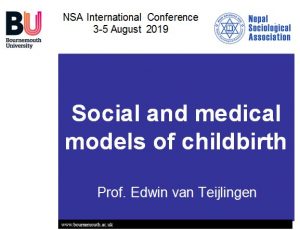


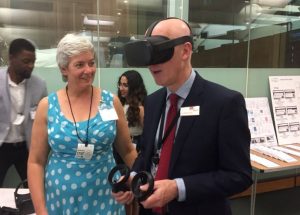
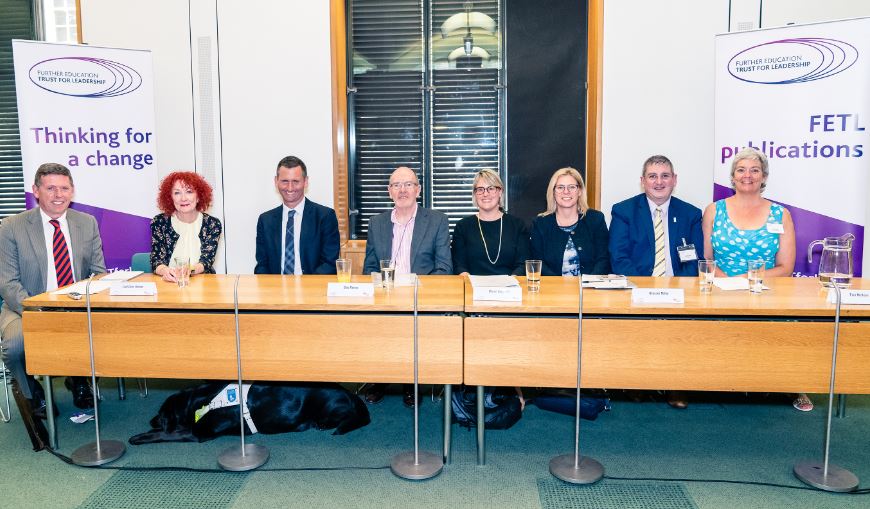







 At Bournemouth University we collaborate with global institutions and organisations through our education, research and practice.
At Bournemouth University we collaborate with global institutions and organisations through our education, research and practice. The British Academy has opened
The British Academy has opened 
 RDS is currently working with cross-disciplinary group of BU academics to develop a proposal. If you are interested either to join the existing group or willing to lead/create a new group, please contact Research Facilitator Ainar Blaudums for further details by the middle of August.
RDS is currently working with cross-disciplinary group of BU academics to develop a proposal. If you are interested either to join the existing group or willing to lead/create a new group, please contact Research Facilitator Ainar Blaudums for further details by the middle of August.
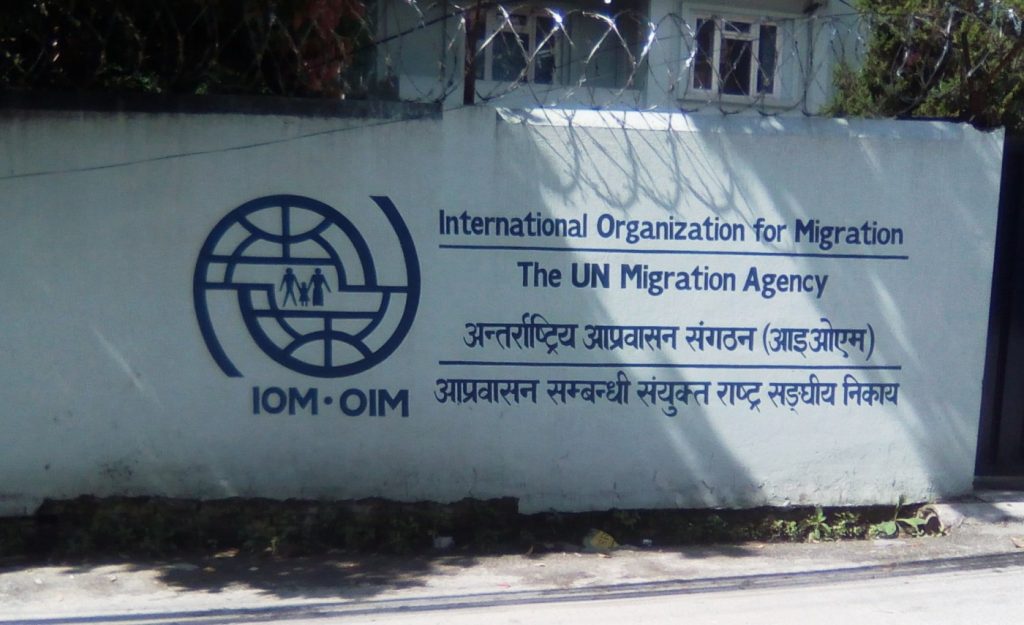



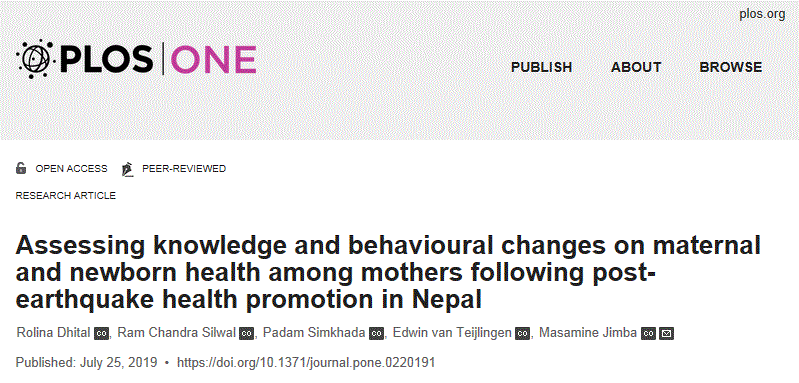



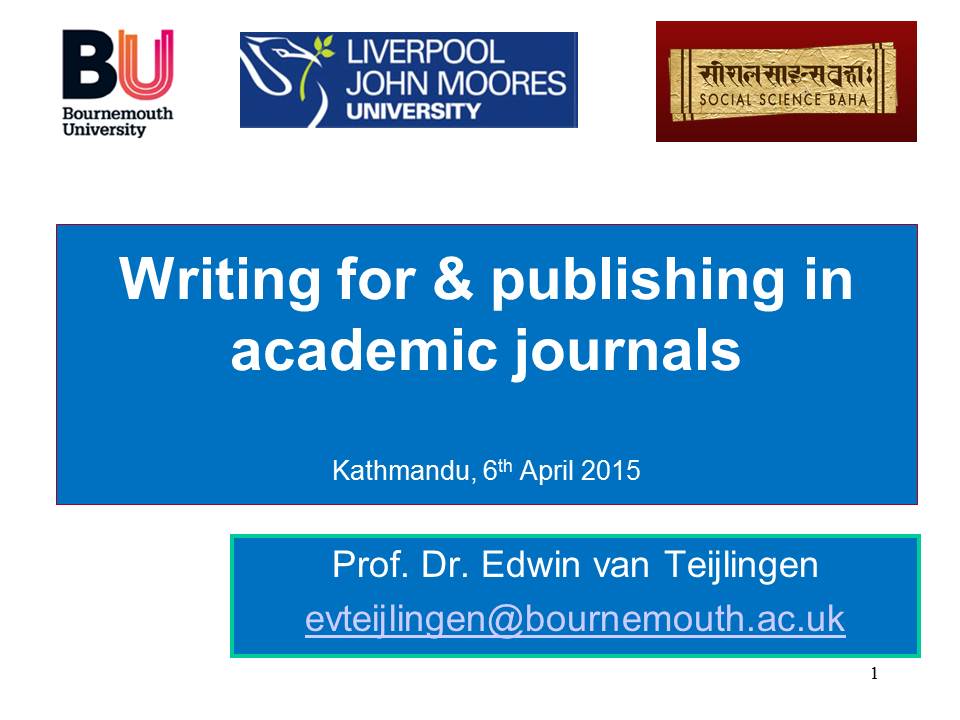













 From Sustainable Research to Sustainable Research Lives: Reflections from the SPROUT Network Event
From Sustainable Research to Sustainable Research Lives: Reflections from the SPROUT Network Event REF Code of Practice consultation is open!
REF Code of Practice consultation is open! BU Leads AI-Driven Work Package in EU Horizon SUSHEAS Project
BU Leads AI-Driven Work Package in EU Horizon SUSHEAS Project ECR Funding Open Call: Research Culture & Community Grant – Apply now
ECR Funding Open Call: Research Culture & Community Grant – Apply now ECR Funding Open Call: Research Culture & Community Grant – Application Deadline Friday 12 December
ECR Funding Open Call: Research Culture & Community Grant – Application Deadline Friday 12 December MSCA Postdoctoral Fellowships 2025 Call
MSCA Postdoctoral Fellowships 2025 Call ERC Advanced Grant 2025 Webinar
ERC Advanced Grant 2025 Webinar Update on UKRO services
Update on UKRO services European research project exploring use of ‘virtual twins’ to better manage metabolic associated fatty liver disease
European research project exploring use of ‘virtual twins’ to better manage metabolic associated fatty liver disease